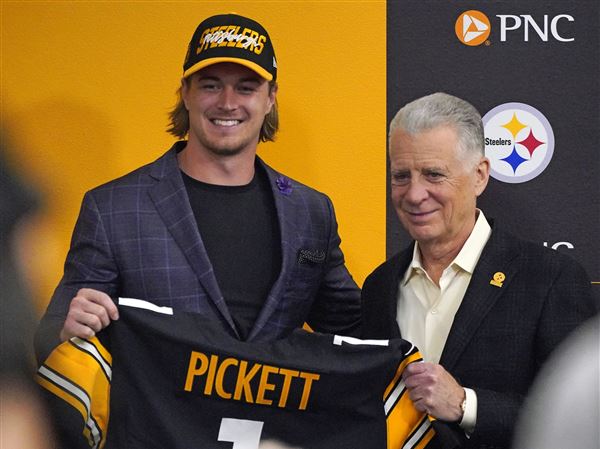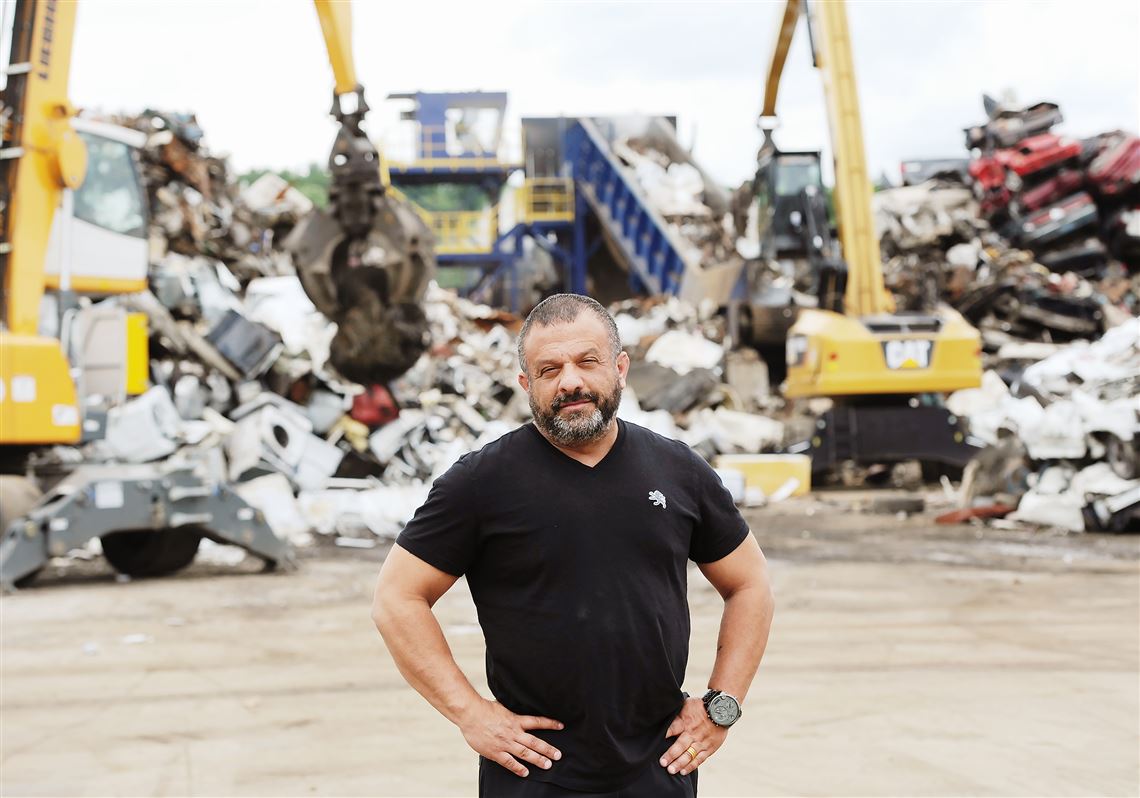Two years ago, Adam Weitsman issued a warning to corporate raider Carl Icahn and Carlos Aguero, operators of two of the nation’s largest scrap processors.
Mr. Weitsman had paid $2.2 million in late 2012 for real estate formerly occupied by a bankrupt New Castle scrap yard and was investing another $22 million to demolish buildings and install new scrap processing equipment on the site. He planned to take on a Beaver Falls scrap plant owned by Mr. Icahn’s Icahn Enterprises and a Neville Island plant owned by Metalico, founded by Mr. Aguero.
“This will be our biggest battle ever going against them right on their home turf,” Mr. Weitsman wrote in an August 2014 Facebook posting. “Carlos and Carl ... time to get out of your corporate offices, park the yachts, and get ready for the fight of your life. I’ll be there soon.”
Two years later, Mr. Icahn’s Beaver Falls plant is idled after processing radioactive scrap and Mr. Aguero sold his distressed company to Chinese investors rather than submit to a takeover offer from Mr. Weitsman, the CEO of Owego, N.Y.-based Upstate Shredding-Weitsman Recycling.
Meanwhile, in Mr. Weitsman’s refurbished New Castle yard, a 2,500-horsepower shredder casually grinds junked cars, appliances and other objects — separating the recycled steel, aluminum, copper and other materials into streams of cash that feed Mr. Weitsman’s fast-growing business. Upstate Shredding has nearly 500 employees at 17 locations in New York and Pennsylvania, and generates more than $750 million in revenue annually.
“I’m sure glad I don’t have to compete with him,” said Michael Coslov, former chairman and CEO of Tube City IMS, a Glassport, Pa., company that manages scrap and provides other services to steel mills.
“His father and grandfather ran a nice little scrap operation. He has taken it to a level they never dreamed of,” Mr. Coslov said.
Recyclers like Mr. Weitsman take in scrap from “peddlers,” consumers and other small operators who want to convert trash to cash. Mr. Weitsman said peddlers come from a 60-mile radius of the New Castle yard. He also takes material from scrap wholesalers that don’t have shredders, which segregate and process materials into a form scrap buyers want. Mr. Weitsman said the New Castle yard’s customers include his neighbor, Ellwood Quality Steels, and Nucor, the largest U.S.-based steelmaker.
Mr. Weitsman said his all-consuming approach to competitors isn’t personal. It’s business.
“A lot of people do it for the money, but he doesn’t. He could care less about that,” said Rachel Cornwell, who met Mr. Weitsman when she was managing a tanning salon and now is an administrative assistant for Upstate Shredding.
“On the work side, he’s very competitive and he wants to win ... He wants to crush all these companies,” she said. “Outside of work, he is very sweet and kind and loving.”
Ms. Cornwell said people usually make this observation after meeting her boss for the first time: “I didn’t expect him to be that nice.”
Saying Mr. Weitsman is a complex person is like saying Jordan Spieth is a fair golfer.
Mr. Weitsman, who turned 48 last week, is built like a torpedo. He is frequently attired in black, often times a black T-shirt that strains to contain his barrel of a chest and biceps.
Before getting into the family business, he collected 19th-century stoneware and used his art world experience to open the American Folk Art Gallery in Manhattan. He is a generous philanthropist, as Binghamton University, the Owego Fire Department, the New York State Museum and other regional nonprofits have discovered.
Architectural Digest wrote up a 1902 mansion in the Finger Lakes region that Mr. Weitsman hired big-name New York architects to gut and remodel. He also spent time in another big house: Otisville Federal Prison in New York, where he served eight months after pleading guilty in 2004 to kiting checks and making a false statement to a bank.
Mr. Weitsman talks freely about the conviction, blaming it on youthful indiscretion and bad decisions he made at a time when his first big project — installing the company’s first shredder in the Owego yard during one of the metal industry’s cyclical swoons — nearly drove the company into bankruptcy. According to the 2003 indictment, Mr. Weitsman circulated about 3,800 checks of three of his family’s companies between two banks, making it look like the companies had more money than they did.
“There was zero loss by either bank, not a dollar,” he said.
Presidents of both banks verified that in letters to the judge, urging him to be lenient. Their reason: putting Mr. Weitsman in prison meant he wouldn’t be there to run the business, exposing the banks to more risk.
“I’m still with those banks today. They didn’t close my accounts,” Mr. Weitsman said.
Brian Andrulewich, a Vestal, N.Y., fitness center owner who has known Mr. Weitsman for more than 30 years, said prison — as well as marrying his girlfriend, Kim, and having a daughter — changed his friend for the better.
Having a child “is probably the best thing that ever happened to him,” said Mr. Andrulewich, who introduced Mr. Weitsman to his future wife and is their child’s godfather.
“You’re not going to outwork the guy,” he said. “His business style and temperament is not for everybody. He knows that. ... But if it is for you, you’re going to benefit from it and you’ll go far.”
Mr. Coslov said Mr. Weitsman’s success derives in part from using social media to effectively promote his business and keeping his yards open longer hours to make it more convenient for customers. While his publicly held competitors can do the same, Mr. Coslov said they can’t put their workers, equipment, and customers first like Mr. Weitsman does because they have to answer to shareholders first.
“He has a culture that is just incredible,” Mr. Coslov said.
Mr. Weitsman, who said micromanaging “is my biggest strength and my biggest weakness,” also doesn’t spend as much time sleeping as his competitors do.
“You can ask any of my friends. If they text me at 2 a.m., they get an answer in five minutes,” said Mr. Weitsman, who said he typically works 90-hour weeks. “It’s very go, go, go. I push very hard here.”
Ms. Cornwell said working for her boss “is definitely not for the faint of heart.”
“I tell people he’s tough because he is,” she said. “He’s very passionate about what he does and he wants everything to be perfect. He works as hard as he wants everyone else to work.”
Len Boselovic: lboselovic@post-gazette.com or 412-263-1941.
First Published: June 20, 2016, 4:00 a.m.
















